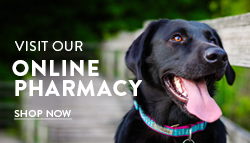Blog

The COVID era was a very stressful and foreign experience for many people. Many adopted puppies and dogs during that period to keep them company. Others who had dogs felt the shift in the daily routines that they were used to.
The new pups and dogs did not experience proper socialization with other people and dogs during that time. The dogs that already had a home may have become stressed because they spent so much time indoors.
Both these types of dogs had the potential to react differently when the lockdown ended. They were again bombarded with a lot of new information and people and started seeing people and dogs in numbers they were not used to anymore. Because of the lifestyle changes your pet has gone through within a short amount of time, it is important to learn the steps to help your dog adjust to the normal world again.
Here are some tips to get your dog ready for the world and less reactive.
Dog Socialization
Some dogs and pups are naturally shy and nervous. When they stayed with you in the house during the lockdown, they acclimated to the world as only you and them, or whoever lived in your house. It may make them start to feel afraid when they encounter new visitors or people. Other dogs may become overexcited at the sight of a new visitor. In both cases, the dogs may bark, jump up and down, and have other unwanted behavior.
If Your Dog Is Overstimulated
One of the ways you can deal with this is to guide your dog through the experience. Ensure you have a leash and treats on the ready. When the doorbell rings, give your dog some treats and encourage them. Ensure they are calm and in a sitting or laying position before opening the door.
If Your Dog Is Shy
If your dog is shy, it would be best if you did not force them to interact. Let the dog approach the visitor on their own accord. Also, ensure you encourage them and reward them when they behave properly. One way to introduce people to shy or scared dogs is to have the person sit on the ground/the dog’s level, facing the opposite direction so as to not be confrontational, and let the dog approach at its own pace.
Rebuilding
When getting back to normal life, you likely felt something different. It is the same for your dog, but unlike you, your dog may not understand its emotions very well. Ensure that you do not take your dog straight to crowded places; rather, take them to open areas and let them move at their own pace. It will help the dog adjust to the new world more comfortably.
One of the ways you can make this transition better is to take it to pet-friendly places. You can go to a daycare center, take it to another dog for a play date, or a dog park. But if your dog is shy, you may start by just going outside and progress slowly.
Use Distance
If your dog is overstimulated by fear or excitement, use distance to help them cope. Keep the dog at a safe distance from people and other dogs to be calm. Ensure you are close enough to give them treats and instruct them to do things like sit or do other tricks.
Train Instead of Correct
When your dog reacts wrongly in a situation, do not yell at them because they are only reacting naturally. Use positive associations to reinforce good behavior, and they will pick up much faster.
For more tips for dogs that have become reactive after the COVID era, contact Bergen County Veterinary Center at our office in Waldwick, New Jersey. Call 201-205-2500 to book an appointment today.






